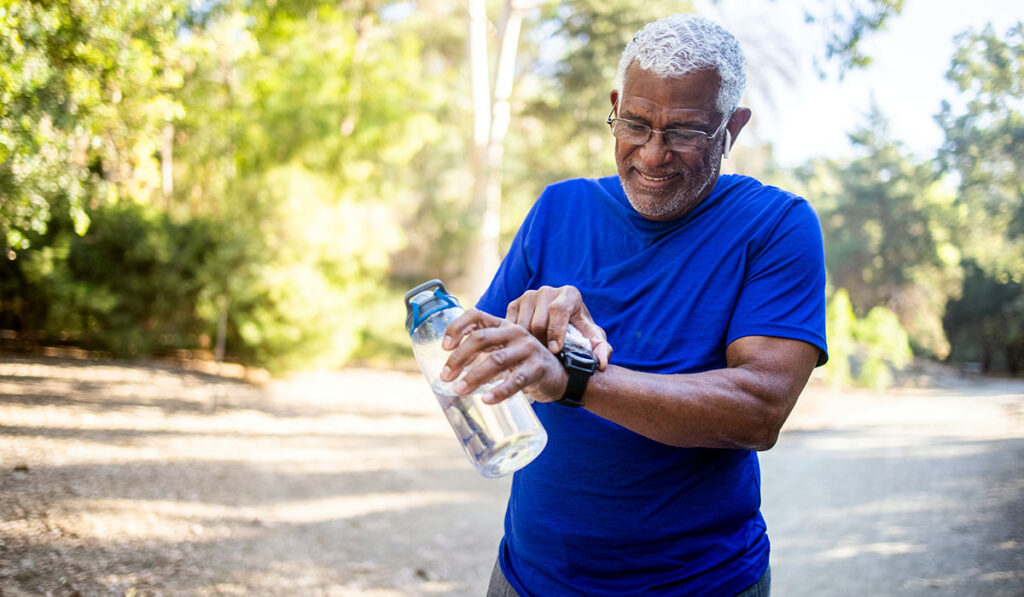Health coaching is an emerging intervention that shows promise for helping patients at risk for metabolic disease, including coronary heart disease (CHD) and type 2 diabetes (T2D).
A study led by Ruth Wolever, Ph.D., director of the Vanderbilt Health Coaching Program at the Osher Center for Integrative Health, found that people at risk for one or both of these conditions who had received 10 sessions of health coaching were three times more likely to participate in moderate to vigorous exercise six months after coaching ended.
The study, published in Health Psychology, is one of the few that addresses the sustainability of health coaching beyond the coaching period. Additionally, it was among the first trials to test whether incorporating genetic risk might enhance the impact of health coaching.
Wolever and her team employ a patient-centered coaching approach in which participants determine their own goals. Self-discovery or active learning processes are combined with content education to help participants work toward their goals and self-monitor behaviors to increase accountability, all within the context of an interpersonal relationship with a coach.
Participants are encouraged to make lifestyle decisions congruent with their values, long-term vision and sense of purpose, Wolever said. “Coaching is not about diagnosing or directing behavior. It is about asking the right questions and facilitating change from one’s intrinsic motivation.”
Aiming High
With 200 participants, the study is one of the largest to assess the impact of health coaching on health behaviors.
The participants were active-duty members of the United States Air Force (USAF), their beneficiaries or USAF retirees enrolled in primary care at David Grant USAF Medical Center, Travis Air Force Base, California. Each participant had an elevated risk for developing CHD, T2D or both.
“One of the unique things about the Air Force’s health-care system is that they do very thorough screening for risk factors. It’s usual care for them,” Wolever said.
Participants self-reported their dietary intake and exercise at baseline, three months, six months and one year. Half were randomized to receive 10 remote health coaching sessions over six months. Compared with those not receiving health coaching, the coaching group was 3.6 times more likely to report moderate to intense physical activity at 6 months, and 2.9 times more likely to report the same at 12 months.
Depression scores at six months were also significantly lower among participants receiving health coaching. Wolever notes that the study did not capture significant changes in nutrition, an outcome that has been reported in previous studies.
“Coaching is effective, and we showed that this effectiveness can be sustained.”
The Role of Genetics
Incorporating genetic risk testing alongside the coaching intervention may have helped to leverage outcomes, Wolever noted.
“We hypothesized that if we gave people information about their genetic risks for CHD and T2D, and then they received coaching, the two would work synergistically to impact behavior and lifestyle changes.”
One-half of the coaching subjects and one-half of the control group received the results of their genetic risk testing at baseline to see if this information would enhance outcomes. Among participants who had elevated risk for T2D, those who received coaching as well as genetic risk testing lost slightly more weight at 12 months.
“People wanted to know their genetic profiles; we didn’t experience any genetic fatalism,” Wolever said. “They understood that despite their genetic predisposition, their behavior would still have impact.”
Coaching as an Effective Tool
Wolever hopes this new evidence will encourage physicians to recommend health coaching for their patients – especially those with chronic diseases or who are at high risk for them.
“Physicians will say, ‘This is a problem; let’s try to fix it.’ But if the patient isn’t ready to change it won’t get done. The key is to get the patient focused on fixing something they have interest in changing, then the focus will move over into other areas of their health.”
“We want physicians and other clinicians to know that coaching is a viable option for patients who need to change aspects of their lifestyle, such as physical activity,” Wolever added. “Coaching is effective, and we showed that this effectiveness can be sustained.”





